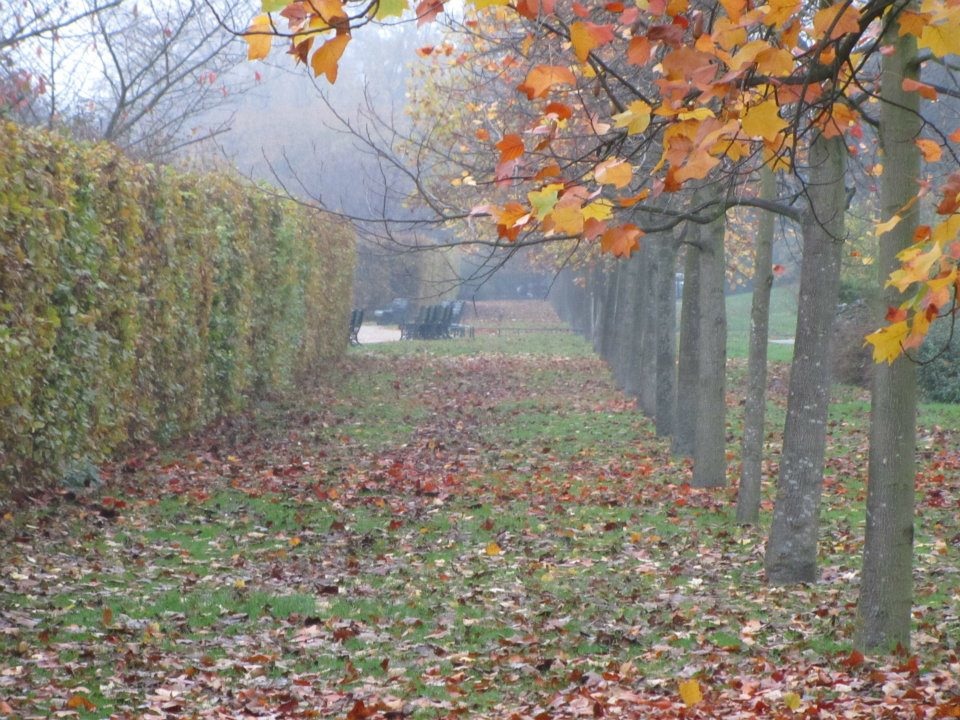 Somehow the autumn has slipped away, and here we are once again on the threshold of the holiday season. Although I've been quiet here for a few months, I haven't been absent from my desk. More often than not, the problem hasn't been too little to say, but too much on my hands and mind: too many words in an article, too many notes on Post-Its and legal pads, too many lists. The period between Thanksgiving and New Year's is probably not the best time to try to cut down on excess, linguistic or otherwise, but it is supposed to be a time of hope. So, in a spirit of hopeful minimalism, here's just a few of the assignments that have been on my plate recently (most of which can also be found over on the Clips page):
Somehow the autumn has slipped away, and here we are once again on the threshold of the holiday season. Although I've been quiet here for a few months, I haven't been absent from my desk. More often than not, the problem hasn't been too little to say, but too much on my hands and mind: too many words in an article, too many notes on Post-Its and legal pads, too many lists. The period between Thanksgiving and New Year's is probably not the best time to try to cut down on excess, linguistic or otherwise, but it is supposed to be a time of hope. So, in a spirit of hopeful minimalism, here's just a few of the assignments that have been on my plate recently (most of which can also be found over on the Clips page):
- "Sign Language": A story for Style Weekly about a documentary entitled Sign Painters that VCU screened this November. I was lucky enough to get to see this roughly 80-minute film when it came through town, and it was worth sitting uncomfortably in a university lecture hall once again for. Beautifully shot, the filmmakers mostly take a step back and let the sign painters tell their own story of a trade that is making an unlikely comeback in cities across America. If you get a chance to see it, go—you won't regret it. A list of screening dates and locations can be found on the documentary's website.
- "Signs of the Times": A profile of local sign painter Ross Trimmer, who tipped me off to the Sign Painter documentary that was coming through town—always nice when one story leads to another! Ross has been going through something of a Richmond media blitz lately; between the time I pitched this story to Hometown Junket and the time it was published, he was also the subject of a great RVA News profile, somewhat to my dismay. But in a small city, it's inevitable that sometimes your work is going to overlap with someone else's—good ideas rarely come to one person alone.
- "Future Bound": Another story for Style, this one about the Richmond used book market. Could have used a few thousand words for this one. Booksellers always have the best stories: about themselves, about other people, about the books they carry. My favorite interviewing moment, which I just couldn't cram into the article, came as a bookseller was describing to me a former store owner who was forced to close her doors. This bookseller wound up the tale ominously and decisively: "A few weeks after she sold the shop, she collapsed and died." I've been accused of ending too many stories with the phrase "And then he/she died," so I can appreciate that conclusion when I hear it from another person's mouth. After that, there isn't much else to say, usually.
- "Q&A with Bill Loehfelm": An interview I did for the Washington Independent Review of Books with the author of The Devil in Her Way. This is a terrific thriller, and Loehfelm has very insightful answers here to questions about New Orleans post-Katrina, intuition vs. knowledge, and the nature of "the system." I'm particularly enamored with this observation of his: "Every system is built on high ideals and then becomes a battleground between our better and baser natures, just like we are." A good thing to remember in these days of contentious political warfare.
I also have an e-review for Rattle magazine slated for publication at the end of the month—more on that when it comes out. In the meantime, if you've never checked out their website, it's worth getting sucked into for a few hours. And if reading their mission statement doesn't make you tear up a little, you're too cynical and probably need to take advantage of the holiday respite later this week.